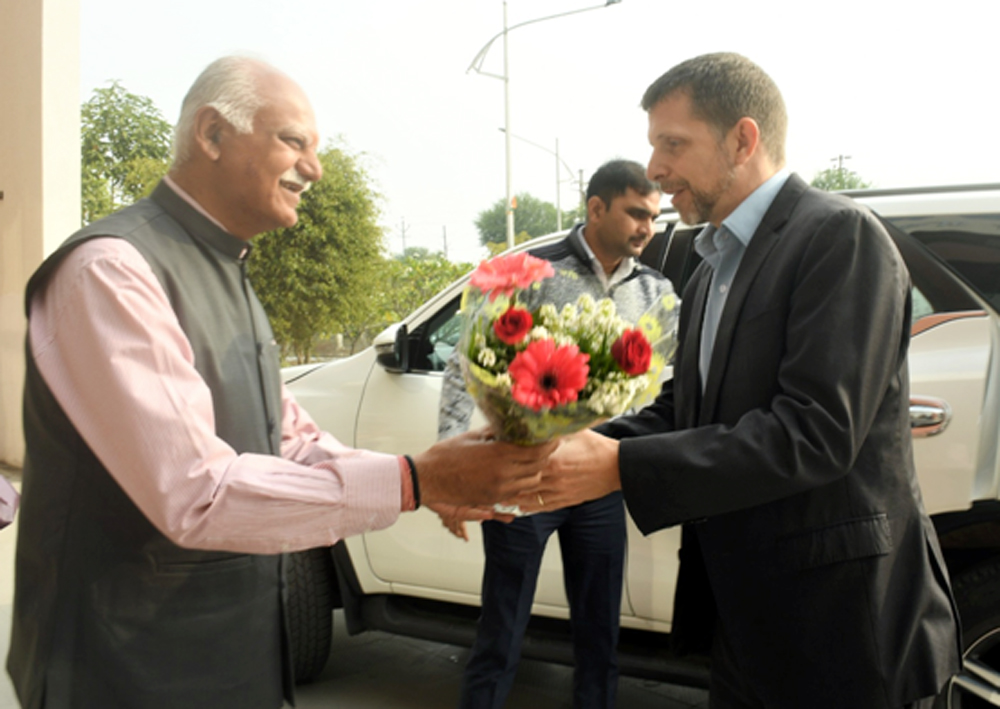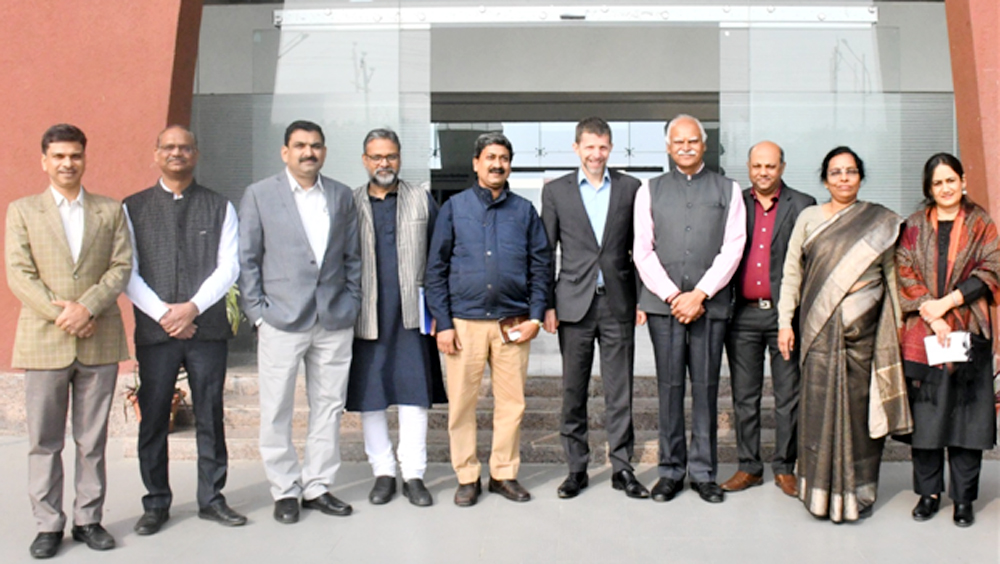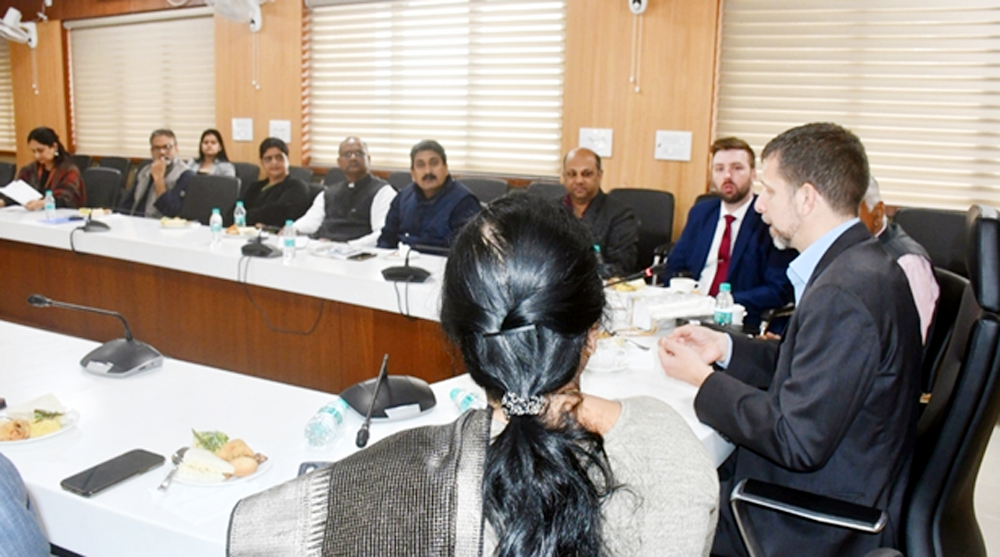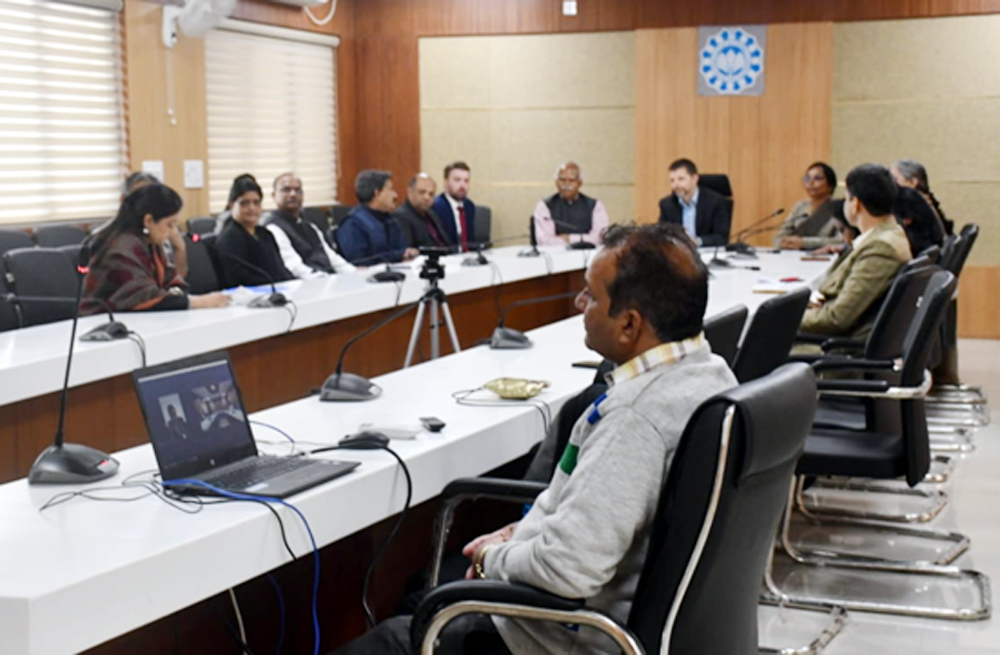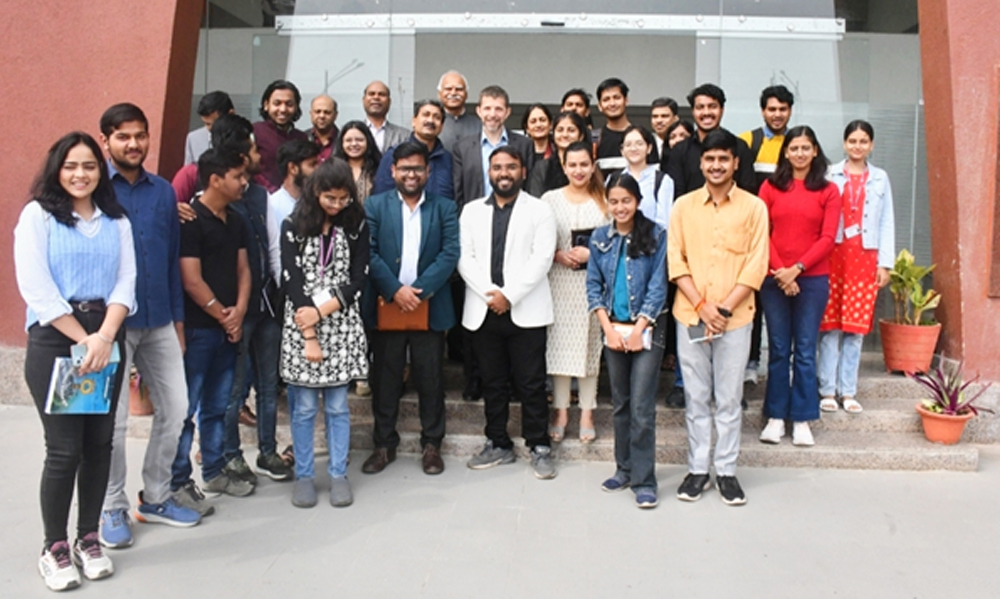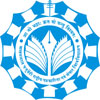Weather Station
(i) A Weather Monitoring Station was setup at Makhanlal Chaturvedi National University of Journalism and Communication, Bhopal in Collaboration with City University of New York and US Consulate General, Mumbai.
In a new research initiative to map air quality and other parameters of weather, the Bronx Community College (BCC) of the City University of New York (CUNY) backed by a grant by the US Consulate General, Mumbai, installed a weather monitoring station at the rooftop of the Makhanlal Chaturvedi National University of Journalism and Communication, Bhopal. The station will monitor air quality and weather on a micro-scale in Bhopal, making it the first in Central India. The U.S. Consulate General, Mumbai’s grant to BCC/CUNY has also led weather monitoring station installations at seven higher education institutions in Western India, including one at IIT-Goa. The Vice chancellor of Makhanlal Chaturvedi University Prof. K. G. Suresh, inaugurated the weather station on October 30, 2023. The event started with the plantation drive at the campus followed by unveiling the Stone Plaque and server room inauguration. A Student Poster Presentation Competition on “Climate Change and Monsoon” was also held on October 18, 2023.
Vice Chancellor Prof. Suresh stated that “It’s a proud moment for the state” which will bring constructive solution-based approaches towards the climate issues which is a serious concern of the world. The installation of this equipment will allow local stakeholders to access minute to minute weather data to take up weather-related decisions in their everyday lives. He emphasized that a mission to understand and address the various challenges arising from global climatic change should be taken up for various research, planning for control and other awareness platforms.
This solar-powered weather station operates on solar energy during the day, using a lithium battery for night time and cloudy days. Data will be shared with ‘Weather Underground,’ putting Bhopal on the global climate monitoring map. Academic institutions plan to include weather and air quality topics in their curriculum. The solar-powered weather sensor will monitor temperature, humidity, wind speed and direction, rainfall, UV radiation, solar radiation, and air quality monitor. The Air Quality device will monitor PM 2.5 and the Air Quality Index. The Vice-Chancellor Prof. K. G. Suresh also signed a “Statement of Shared Interest (SSI)” with the City University of New York (CUNY) which includes academic collaboration, Student and faculty exchange programs, Research Collaboration, joint Seminars, and workshops.”
Neal Phillip, Professor and Chairperson of the Department of Chemistry, Earth Sciences, and Environmental Sciences at BCC/CUNY, and Director, International Collaboration, City University of New York Remote Sensing Earth Systems Institute (CUNY CREST); and Paramita Sen, a lecturer in the same department and Director, India Initiative, CUNY CREST, are co-principal investigators on the research.
Prof. Paramita Sen, Lecturer, Director of India Center and Prof. Neal Phillip, Chair of the department and Director of International collaboration in CUNY jointly conducted a workshop for MCU faculty on weather monitoring and climate change. They provided data-driven insights about the climate issues which can be used to measure temperature, air quality, humidity levels, solar radiation, ultraviolet rays, and carbon dioxide levels in Bhopal. Prof. Paramita said that as academicians, it’s our responsibility to work on the sustainable journey of development so that awareness should reach the different communities.
Registrar Dr. Avinash Bajpai, Dean Academics Professor P Sasikala, Dean Student Welfare Professor Manish Maheshwari, Director Weather Station ,Ravi Mohan Sharma, Coordinator of the event Dr. Garima Patel, Dr. Jaya Surjani, Head of the departments, Director Radio Karamveer and senior faculty members and students were also present in the session.
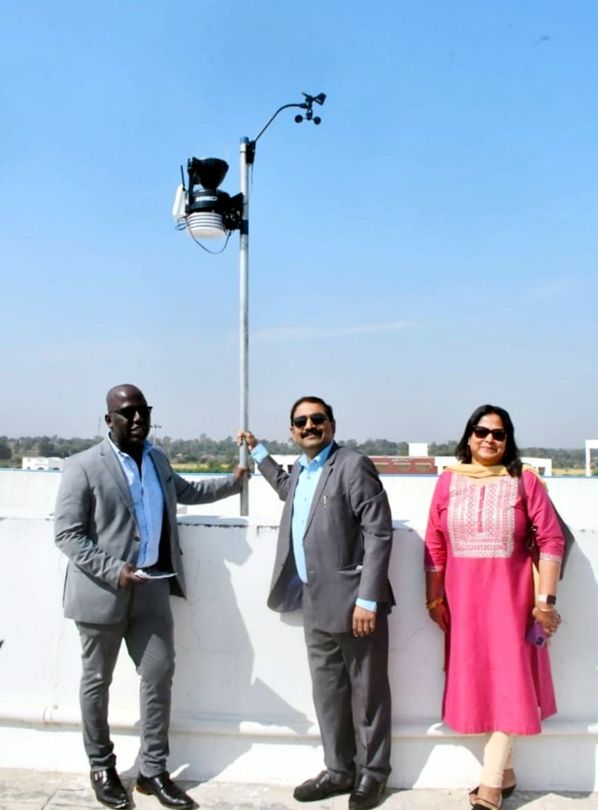
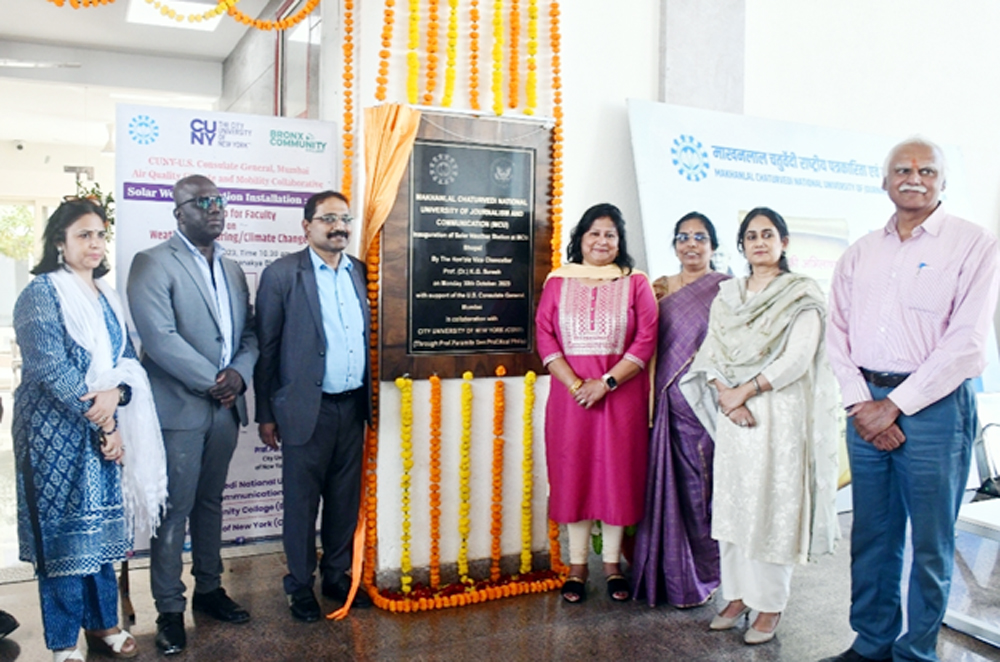
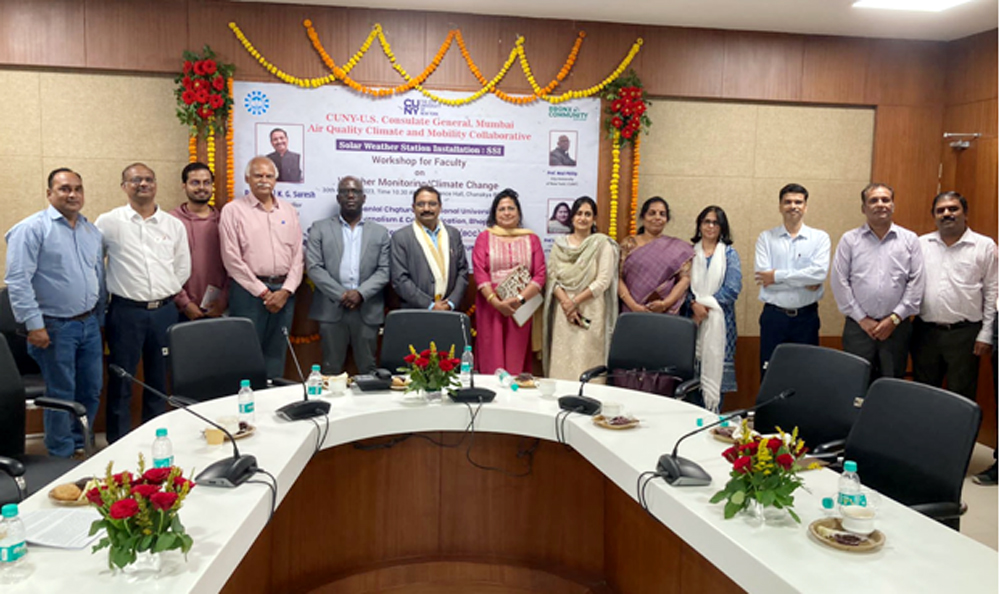
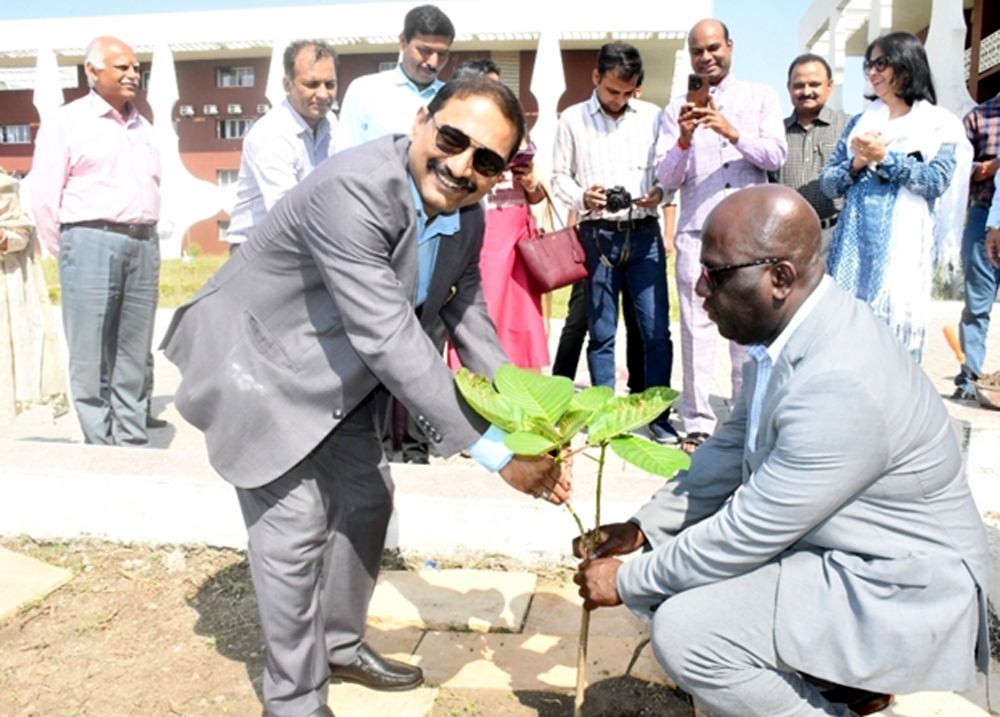
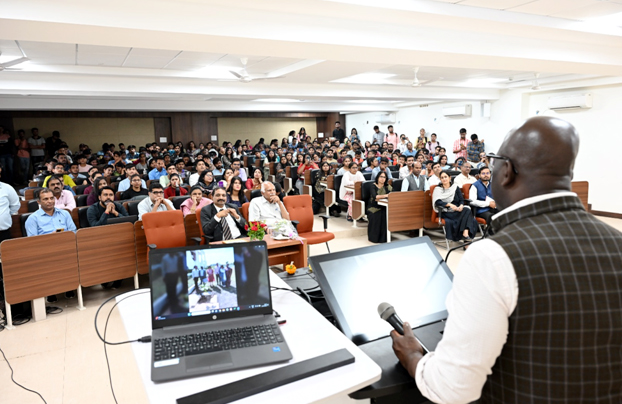
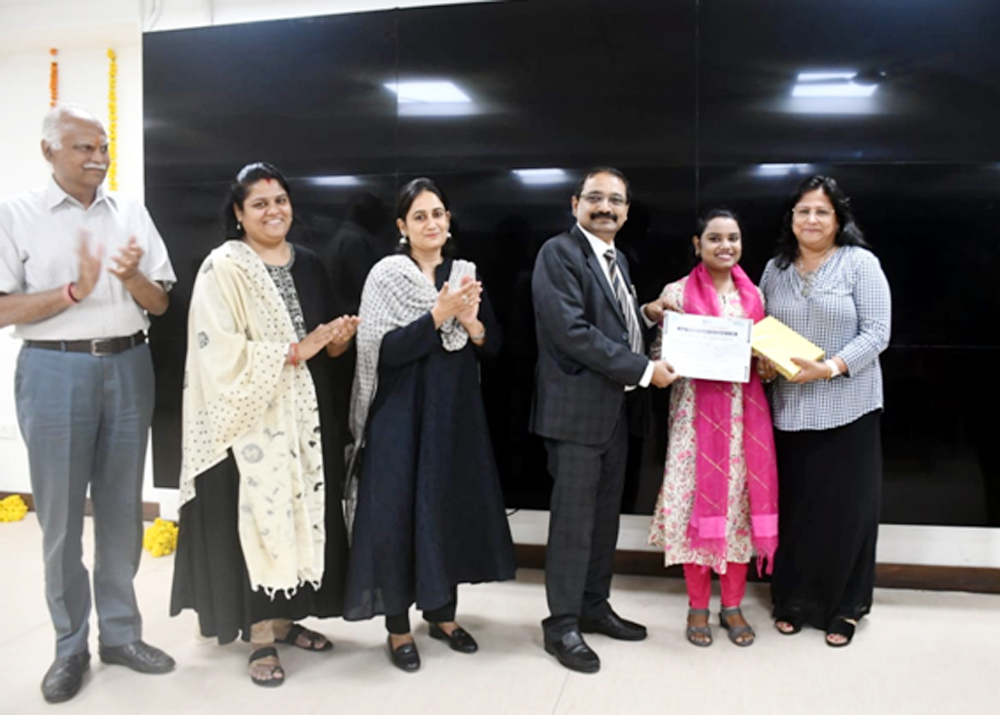
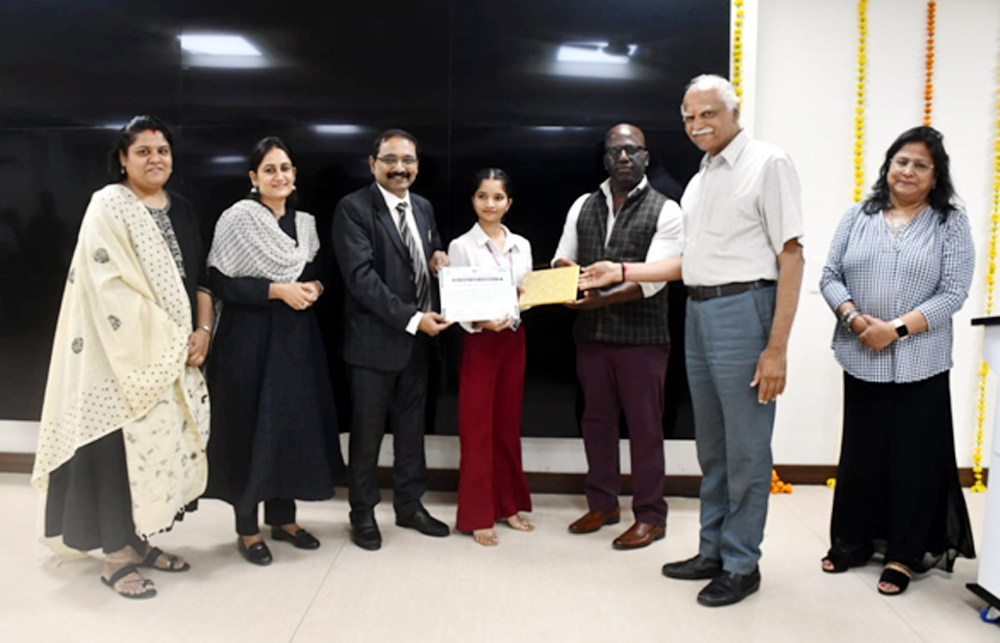
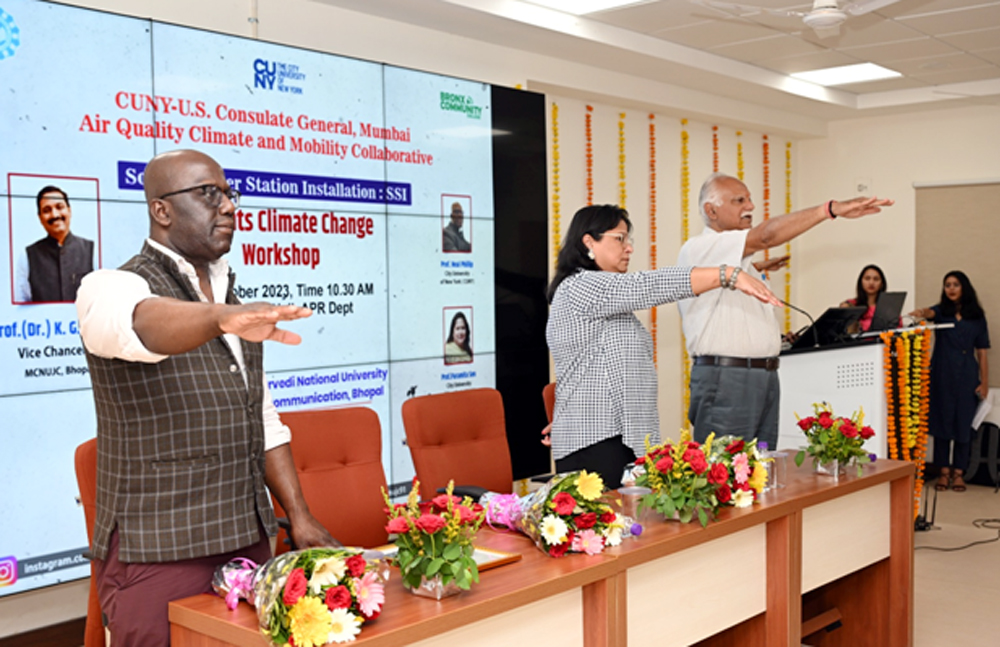
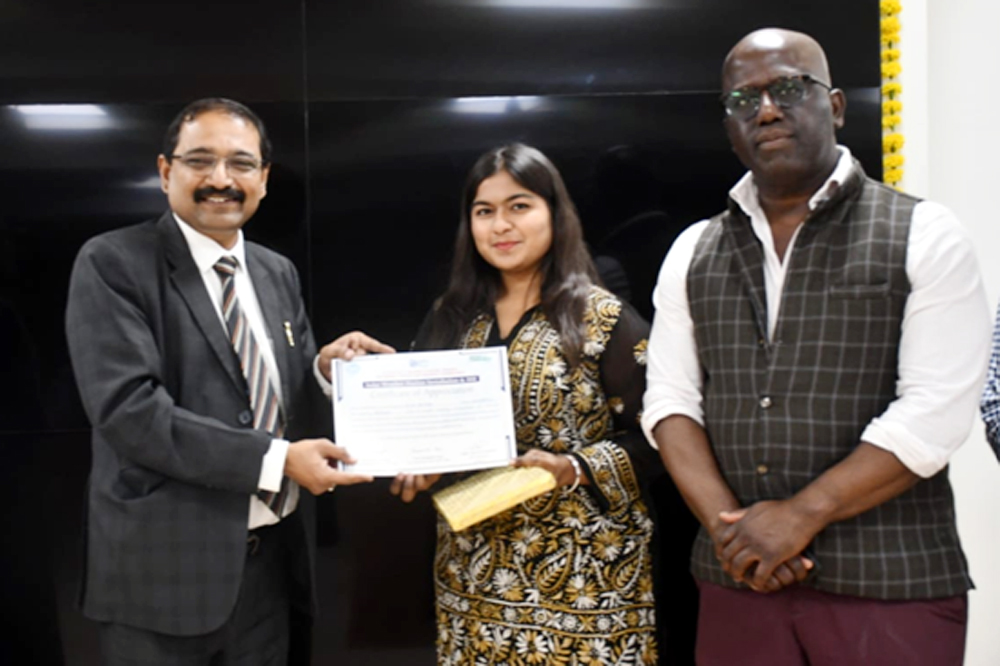 (ii) U.S. Cosulate General, Mike Hankey visits MCU
(ii) U.S. Cosulate General, Mike Hankey visits MCU
Mike Hankey’s visit marks the beginning of a fruitful relationship between Makhanlal Chaturvedi University of Journalism and Communication and the U.S. Consulate General : Prof. Dr. K.G. Suresh
Dive deeper; don’t run after catchy headlines: Mike Hankey, U.S. Consul General
Bharat –U.S. can collaborate to build a defense mechanism that harnesses the transformative power of AI without compromising societal well-being: Mike Hankey, U.S. Consul General
Bhopal. 12 February 2024: The U.S. Counsel General , Mr. Mike Hankey visited Makhanlal Chaturvedi National University of Journalism and Communication and interacted with the leadership team of the university on a wide range of initiatives including opportunities for student and faculty exchange programs, research collaboration and avenues for higher education in the US. The U.S. Consul also spoke about the risks of AI generated media , the challenges that need to be addressed and how Bharat –U.S. can collaborate to build a defense mechanism that harnesses the transformative power of AI without compromising societal well-being. He also said that while this technology has useful applications, it also raises concerns when used in disinformation campaigns and for other malicious purposes and for spreading false narratives and manipulated content that can have negative implications. The Vice Chancellor of the University Prof. Dr. K.G. Suresh said that the Bharat U.S. strategic relationship is founded on shared values including a commitment to democracy and upholding the rules-based international system and both the countries have shared interests in promoting global security, stability and economic prosperity through trade, investment and connectivity. He urged media both in India and U.S. focuses more on these shared values than on the differences.
The U.S. Counsel General also had an interactive session with the students on the theme “Shaping the narrative- the role of media in Bharat U.S. relations”. While addressing the students he said that though the constitution of both the countries differs in terminologies but it also shares the basic structure. Stressing on the role of media he highlighted that media has a responsibility of holding leaders accountable and also in helping people, asking questions and making people aware of the different perspectives.
He also underlined the fact that difference of opinion is necessary and this is something that shapes our individuality and asserted that what we lack today is a single platform where everyone can come together. Advising the media students he urged them to dive deeper into the facts by doing thorough research. He also requested them to not run after catchy headlines but to go after broader investigations for their stories. He also highlighted role of the Indian Diaspora in his address by calling it as diverse as the people of the country.
Registrar Dr. Avinash Bajpai, Dean Academics Professor P Sasikala, Dean Student Welfare Professor Manish Maheshwari, Director Weather Station, Ravi Mohan Sharma, Coordinator of the event Dr. Garima Patel, Dr. Jaya Surjani, Head of the departments, Director Radio Karamveer and senior faculty members and students were also present in the session.
